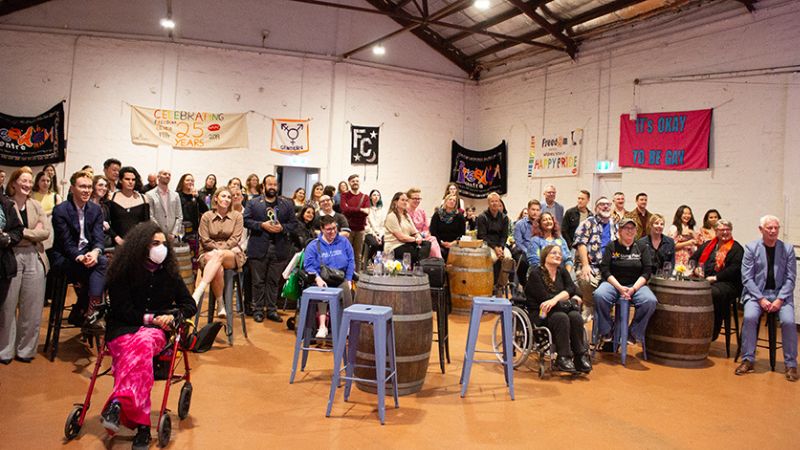Estimated reading time: 7 minutes
The Freedom Centre, Western Australia’s LGBTIQA+ youth centre has celebrated its 30th anniversary with a gathering that brought together staff, volunteers and clients of the vital service.
The centre is part of WAAC, formerly the WA AIDS Council, and at a special event to celebrate the milestone CEO Dr Daniel Vujcich noted that it had been quite a journey over the last three decades.
Ingrid Cumming delivered the Welcome to Country and noted how much the world had changed since she came out as a young queer woman in the 1990s.
She shared how proud she was of her own children who have become advocates for LGBTIQA+ rights who regularly speak about the importance of safe spaces.
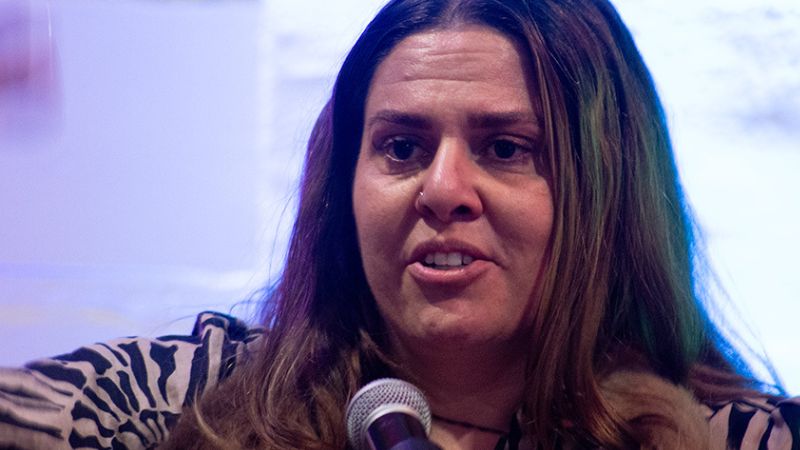
Dr Graham Brown, who is now at LaTrobe University, spoke about the centre’s early years where it moved around a variety of dubious locations and struggled to find the necessary funding to keep its doors open.
After establishing the peer based youth service, Brown has gone on to study peer-based health promotion and become a leader in the field.
“1994 was a challenging time.” Brown said. “We were under some of the strictest anti-gay laws in Australia. The age of consent between men was 2,1 as well as there was a Homosexual Oriented Offenses Act that many people were aware of, making it a crime for a person to promote or encourage homosexual behavior as part of the teaching in schools, or it could not be a public good to promote homosexual behavior.”
Thirty years ago, gay bashings were commonplace and just walking from The Court Hotel to Connections was sometimes fraught with danger. At the time WA’s health minister had banned a youth focused safe sex campaign because it promoted the use of condoms, and the local community was dealing with the peak period of people suffering from AIDS related deaths.
In borrowed space in Northbridge young activists including Michael Atkinson began running workshops for young gay men. Soon the board of WAAC were convinced there was a need for a dedicated space for young LGBTIQA+ people.
In their first rundown space near the corner of William and James streets in Northbridge the centre was established, the funding was directed at gay men over the age of 21, but in reality the doors were open to all young people.
“The rainbow of genders and sexualities were part of the Freedom Center from the very early days.” Brown said, recalling his first position at WAAC as a Youth Projects Officer.
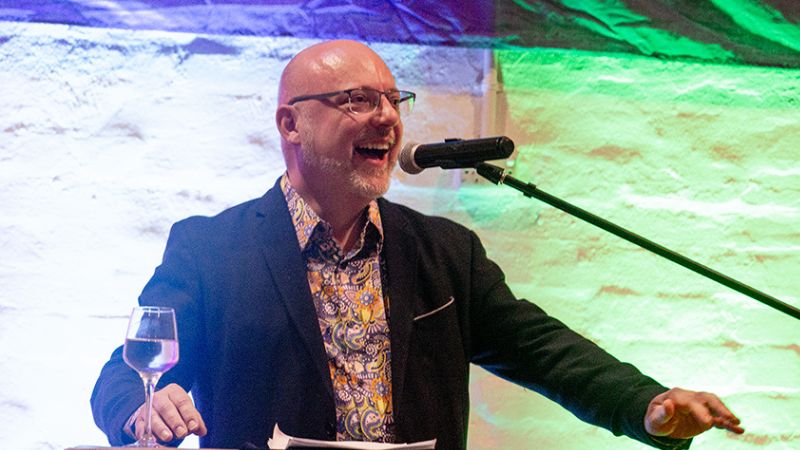
Commonwealth funding allowed the centre to have some stability and ramp up the services it offered, and a fulltime coordinator was appointed to run the facility. Pia Coates took on the challenge.
The centre moved locations many times, a succession of dilapidated spaces, Brown recalled that the Freedom Centre’s second location was a building where if you slammed the door the windows were likely to fall out.
The team faced many challenges, a proposal to test an anti-bullying campaign at a local high school was cancelled when the media found out about the plan, and it caused an uproar. It would be many years before schools would bring in anti-bulling campaigns.
Another funding proposal was knocked back with the team being told that it was because their campaigns made being gay or lesbian look too positive. The work continued with Merideth Turnbull taking over as coordinator and the centre began to win awards for its programs.
Brown recalled that the climate about being gay, lesbian or bisexual was very different in the 90s. Young people would often be spotted sitting at the cafe across the road from the Freedom Centre’s third home, sometimes spending hours or multiple visits to build up the courage to walk through the door. Eventually the cage began putting flyers out on its tables.
To be back in Perth making the centre’s thirtieth birthday prompted Graham Brown to consider how the world has changed so much, while yet in other ways the challenges for young LGBTIQA+ people remain.
“Looking back, we never thought for a moment that 30 years later, Freedom Centre would be so strong. It’s overcome many challenges after each battle and left the world a better place. That is a tribute to the hundreds of Freedom Centre leaders and volunteers and the allies and organisations that have supported it, but there will be more challenges.
“Over the past 10 particular last bias in particular, we’ve seen a reemergence of undermining trans and non-binary young people’s lives, following the awful playbook that we’ve seen before, but this time with more funds and more political nuance.” Brown said.
Brown said in 2024 young LGBTIQA+ people need more than allies, they need accomplices.
“What we need is accomplices, taking risks with and trusting the insights of our young peers. The idea of Freedom Center 30 years ago was audacious. It started at most with borderline permission, a principle of peer lead and it’s constantly evolved and adapted. It was enabled by allies and accomplices, trust in the audacity of young people and their vision.” Brown said raising his glass in a toast to “being accomplices to the ongoing audacity of freedom.”
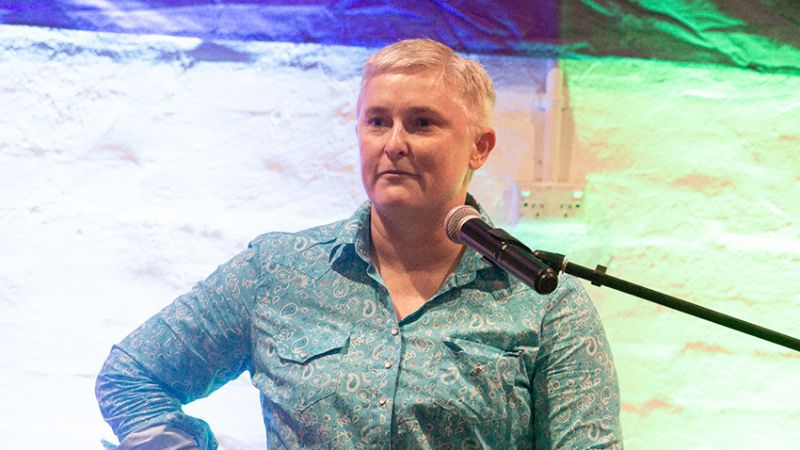
Meredith Turnbull, who returned to Perth from her current home in Sydney for the celebrations, reflected on her time as the coordinator of the Freedom Centre.
Turnbull recalled that the team at the centre often took an approach of forging ahead with things they wanted to do, and asking permission often came later, usually in the form of requesting forgiveness.
During her time there were incidents of walls being turned into bold artworks and the centre bravely branched out into the online space setting up a website – something that was considered groundbreaking at the time.
Giving a perspective on life at Freedom Centre today Shane Early, WAAC’s Community Development Officer in the Kalgoorlie Boulder region spoke about his experiences in his native Canada, and the challenges and expectations of the clients he works with now.
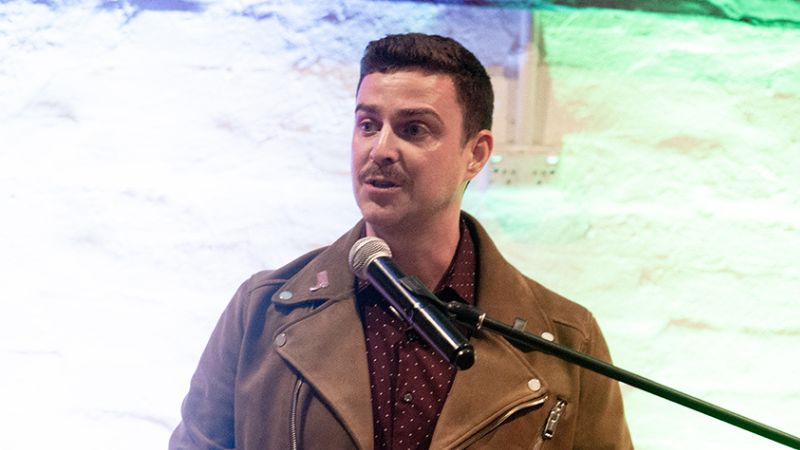
Wrapping up the formalities of the evening Dr Vujcich shared a hilarious letter the team at the Freedom Centre has written to local LGBTIQA+ newspaper The Westside Observer following a series of setbacks over several months.
Described as a period of “intense misfortune” the letter recalled that over a two-month period the centre had been broken into and all their electrical appliances had been stolen. There’s been another attempted break in but this time the staff were present, but staff and clients had also been present when a rock came hurling through the centre’s window.
Shortly afterward there a fire, which damaged all the recently replaced electrical equipment from the break-in, and then a second fire destroyed the centre’s library and left some team member hospitalised. Despite all the setback’s they fought on and thanked the community for all the help with the clean ups.
Vujcich described the letter as the perfect metaphor for the last three decades, and the challenges the centre continues to face today to provide the safe space young people need.
“Here’s the 30 more years of doing hard things and encountering resistance and pushing even harder in response. Here’s the 30 more years of telling queer young people that they deserve to proudly and boldly take up space in this world. Here’s to 30 more years of unapologetic and unstoppable inclusion.” Vujcich said to an enthusiastic crowd.
